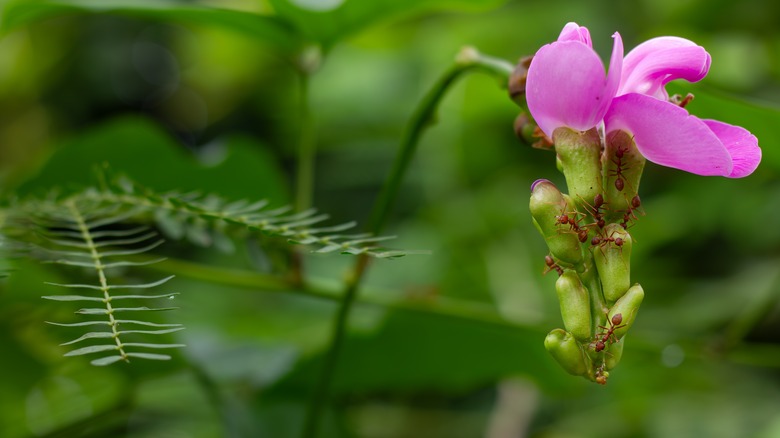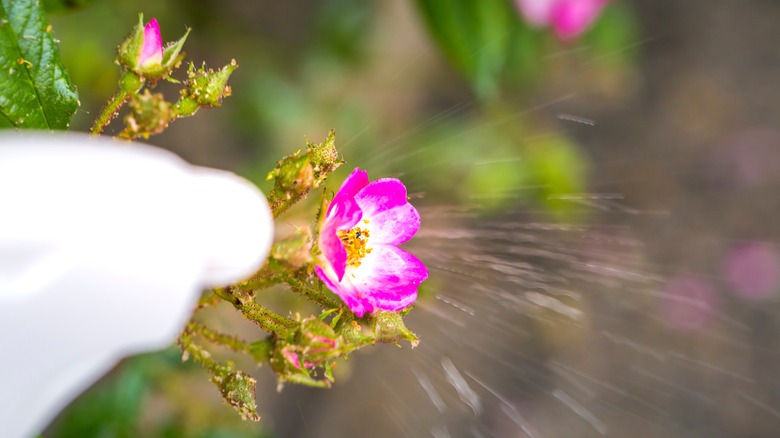Why Ants In Your Garden Could Actually Be A Sign Of Aphids
We may receive a commission on purchases made from links.
Ants can seem to show up out of nowhere in your garden. One day you've got beautiful plants that look healthy, and the next you've got ants climbing all over the leaves and stems. But did you know you might be dealing with more than a minor nuisance? In many cases, ants in your garden are a sign of an aphid infestation, and these tiny insects are big trouble for your plants.
Aphids feed on plant sap, draining nutrients and leaving plants stunted, wilted, or with yellowed leaves. Ants are attracted to the sticky substance aphids leave behind called "honeydew," which has a high sugar content. This is why you can often see ants gathered at the base of fruit trees. If you watch carefully when the sun is just right, you can see drops of honeydew dripping from the aphid-infested branches — and at the base, a herd of ants enjoying a feast. Ants and aphids have what is known as a symbiotic relationship. It is said that ants actually farm aphids, herding them into groups around the most nutrient-dense parts of a plant, protecting them from predators, and coaxing them to produce honeydew. The ants will intentionally fend off ladybugs and other good bugs that chase pests from your garden, giving aphids free rein to spread.
While the ants themselves might be damaging, they signal a deeper problem. A strong spray of water will knock most aphids off, but if you have a heavier infestation, you may need to use an insecticidal soap like Garden Safe or neem oil. Reducing the aphid population removes the ants' food source, which will encourage them to go elsewhere.
Natural strategies to get rid of aphids
Once you've realized you have an aphid problem, it's time to take action. If you don't want to use harsh chemicals that can harm your soil or beneficial insects, there are more eco-friendly ways to deal with aphids. One simple planting technique that will prevent pests from eating your garden is companion planting. This method works by planting a combination of different herbs and flowers, such as chives, to repel harmful insects before they become an issue. Not only will this deter the aphids and ants naturally, but it will also improve the health of your soil and attract beneficial insects. This is why you will also want to plant pollinator-friendly cultivars.
Maintaining the health of your plants is also another way to deter aphids. Stressed-out and young plants are the food of choice for these irritating insects. To prevent infestations, balance soil nutrients, avoid overwatering or overfeeding, and regularly check the undersides of leaves to catch problems early. By combining natural pest deterrents, smart planting practices, and regular garden inspections, you'll not only keep aphids at bay but their ant overlords as well.

